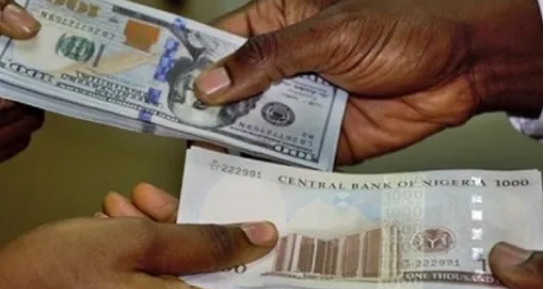News
SEE FULL LIST: 16 banking transactions exempted from CBN’s new cybersecurity levy

By Kayode Sanni-Arewa
The Central Bank of Nigeria on Monday directed all banks to commence charging a 0.5 per cent cybersecurity levy on all electronic transactions within the country.
The apex bank stated this in a circular signed by the Director, Payments System Management Department, Chibuzo Efobi; and the Director, Financial Policy and Regulation Department, Haruna Mustafa; a copy of which was obtained by PUNCH Online.
The circular, which was directed to all commercial, merchant, non-interest, and payment service banks, among others; noted that the implementation of the levy would start two weeks from Monday, May 6, 2024.
“The levy shall be applied at the point of electronic transfer origination, then deducted and remitted by the financial institution. The deducted amount shall be reflected in the customer’s account with the narration, ‘Cybersecurity Levy,’” the circular partly read.
In this piece, PUNCH Online highlights all the 16 banking transactions that are exempted from the CBN’s new cybersecurity levy:
1. Loan disbursements and repayments
2. Salary payments
3. Intra-account transfers within the same bank or between different banks for the same customer
4. Intra-bank transfers between customers of the same bank
5. Other Financial Institutions instructions to their correspondent banks
6. Interbank placements,
7. Banks’ transfers to CBN and vice-versa
News
Court Remands P-Square’s Brother, Ex-Manager Jude Okoye IOver Alleged N1.3B, $1M, £34,000 Fraud

By Kayode Sanni-Arewa
The Economic and Financial Crimes Commission (EFCC) has taken Jude Okoye, the elder brother and former manager of the defunct music duo P-Square, to court over alleged money laundering involving ₦1.38 billion, $1 million, and £34,537.59.
Jude Okoye, along with his company Northside Music Ltd, was arraigned before Justice Alexander Owoeye of the Federal High Court in Lagos on Wednesday, facing a seven-count charge related to financial crimes.
One of the charges states: “That you, Jude Okoye Chigozie and Northside Music Ltd, sometime in 2022 in Lagos, within the jurisdiction of this Honourable Court, did directly acquire a landed property known as No 5, Tony Eromosele Street, Parkview Estate, Ikoyi, Lagos worth ₦850,000,000.00 (Eight hundred and fifty million naira) only, which money you knew or reasonably ought to have known forms part of proceeds of unlawful acts, thereby committing an offence contrary to Section 18 (2)(d) and punishable under Section 18 (3) of the Money Laundering (Prevention and Prohibition) Act, 2022.”
Another charge alleges that Jude Okoye and his company used a Bureau de Change operator to convert $1,019,762.87 (One million nineteen thousand, seven hundred and sixty-two dollars, eighty-seven cents) domiciled in Access Bank Plc into naira and remitted the funds into various accounts with the intent to conceal the source of the money, in violation of the Money Laundering Act.
Jude Okoye pleaded “not guilty” to the charges.
Following his plea, EFCC counsel Larry Peters Aso applied for a trial date and requested that the defendant be remanded in a correctional facility pending trial.
However, defence counsel Inibehe Effiong informed the court of a pending bail application and urged the court to keep Okoye in EFCC custody until the application is heard.
The prosecution opposed the request, citing congestion in EFCC facilities and urging the court to remand him to a correctional centre instead.
Justice Owoeye subsequently adjourned the case to February 28 for a bail hearing and fixed April 14 for trial commencement.
The judge also ordered that Jude Okoye be remanded at the Ikoyi correctional facility pending the determination of his bail application.
News
Funso Ayeni donates N1m, appeals to citizens to support Fisayo Aluko medical needs

By Kayode Sanni-Arewa
Prince Funso Ayeni, an Ikole born philanthropist and politician has donated the sum of N1,000,000 for the support of one Esther Fisayo Aluko Medical needs.
Fisayo Aluko, an Indigene of Ikole LGA part of Ekiti State is currently in need of fund running to millions of Naira to carry out a kidney transplant.
Prince Funso Ayeni made his support known via a Whatsapp platform created for the Indigenes of the LG.
“Good afternoon great citizens,
I am Prince Funso Ayeni (PhD)
I am deeply touched by the condition of Esther Fisayo Aluko, a young lady from Ikole Ekiti, battling kidney issue.
On behalf of myself, my family, and the entire Funso Ayeni Foundation (FAF), I have donated ₦1,000,000 (one million naira) towards her medical treatment ( receipt attached).
“I also appeal to our brothers and sisters from Ikole Local Government, both in and out of government, to rally their contacts and resources to support this urgent cause.
“Together, we can give Esther a chance to live a healthy life again.
News
Naira again falls against Dollar – February 26

By Kayode Sanni-Arewa
The naira is exchanging for ₦1,498 to 1 US Dollar at the parallel market (black market) in Nigeria.
This means that for every one dollar, you can get the equivalent in naira of ₦1,498 on February 26, 2025.
The black market rate signifies the value at which individuals can trade their dollars for naira outside the official or regulated exchange channels.
Note that the Black Market Exchange rate is typically higher than the official exchange rate because it is not regulated by the government
Today’s February 26 exchange shows that the naira has improved against the dollar, as it strengthened compared to what it traded on Tuesday, February 25, when the naira exchanged ₦1,499.
The value of any nation’s currency is determined by aggregate supply and demand.
The forces of supply and demand are themselves influenced by a number of factors, including interest rates, inflation, capital flow, and money supply.
The most common method to value currency is through exchange rates. The two main exchange rate systems are fixed rate and floating rate systems.
Investors and participants closely monitor these parallel market rates for a more immediate reflection of currency dynamics
-

 News19 hours ago
News19 hours agoCitizenship for sale as Trump announces “Gold Card” Immigration Plan, $5M
-

 News24 hours ago
News24 hours agoSenate votes to send Natasha to face Ethics committee over seat reallocation palaver
-

 News14 hours ago
News14 hours agoAmaewhule, 26 Other Lawmakers Never Defected To APC, Rivers Chair Confirms
-

 News19 hours ago
News19 hours agoSAD! Lady Loses 3-Year-Old Son Hours After Allowing Father Take Him for Weekend Visit
-

 Politics24 hours ago
Politics24 hours agoTinubu presides as APC national caucus holds meeting in Aso Rock
-

 Economy23 hours ago
Economy23 hours agoNigeria’s economy experiencing growth as GDP grows 3.84% in Q4
-

 Foreign22 hours ago
Foreign22 hours agoDenmark to ban mobile phones in schools
-

 Opinion21 hours ago
Opinion21 hours agoITU and autonomous Artificial Intelligence







